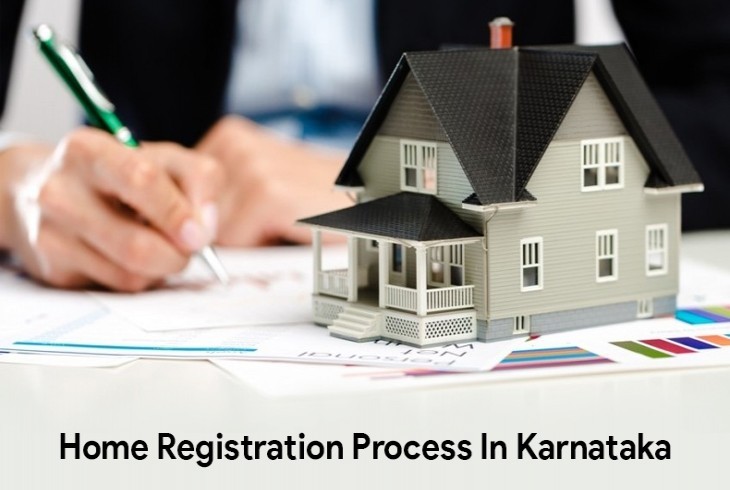Once you have undergone the rigmarole of finding the most perfect property you can call “home”, giving it a legal acknowledgement is important. The process doesn’t just end with finding a home, it’s a step closer to calling that dream space you just bought, your abode of peace and luxury. After buying your home, registering it is mandatory. The house registration process can be scary but we assure you, confidence immediately after a thorough read of this article. It is obligatory to register your home (sale deed) under Section 17 of Registration Act, 1908 for it to be legally valid and binding. Property registration process is a step by step lengthy procedure that requires your patient and concentration before you can legally call the purchased property your home.
Let’s have a look at the procedure and the documentation required before the property registration process at the deeds office. The documentation required is as the following:
- Encumbrance Certificate
- The original document bearing signature of all parties.
- Challan/DD evidencing payment of full stamp duty, transfer duty (if any),Registration fee and user charges
- Property card.
- Proof of Identity of both seller and buyer and also the witness
- PAN CARD
- Power of attorney (If an real estate agent or an individual in between seller and buyer)
- Aadhar card
- Original Id proof and address proof to display before the registrar.
The government of Karnataka launched an online portal for property registration by the name Kaveri in the year 2018. Much in time, it saved most of the home buyers time and safeguarded them from the pandemic that shook the world in 2019 by making the application process online. The lengthy procedure that otherwise needed to be done in Government offices can now be successfully done online making house registration process comparatively simpler. Here is your step wise guide:
- Visit the official website - www.kaverionline.karnataka.gov.in
Register yourself as a user by clicking on the “register as a user” button on the right after logging into the website.
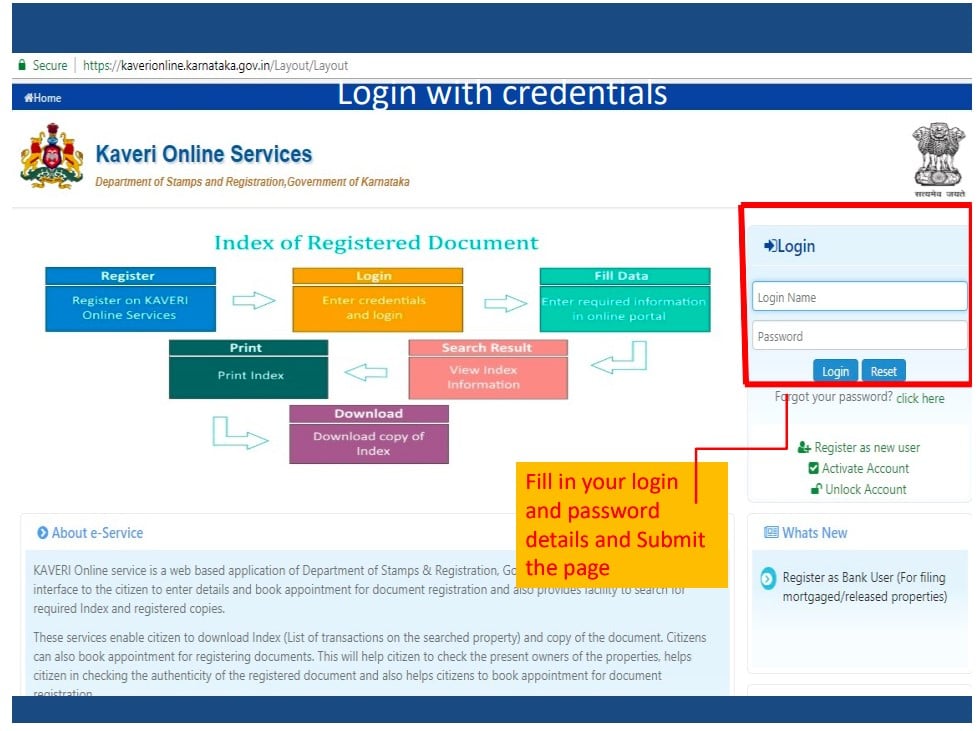
- All the documents aforementioned must be submitted online for registration of the property within 4 months from date of execution (signature). Click on the “Documentation Registration” button on the top left section as shown in the image below and upload it for further process.
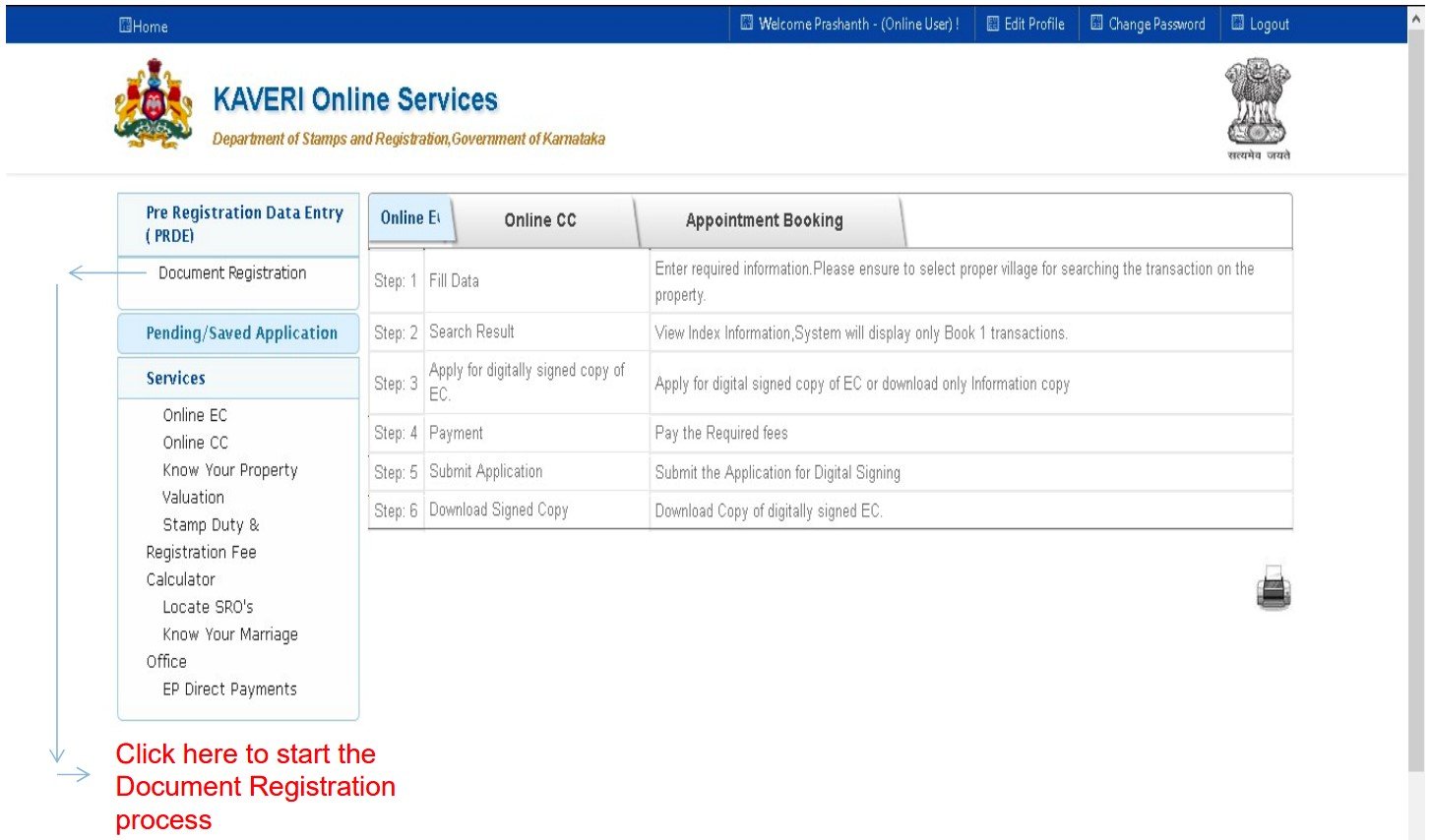
3. Enter all the details like date of execution of sale deed along with other asked details like witness details. After punching it all save and then hit proceed.
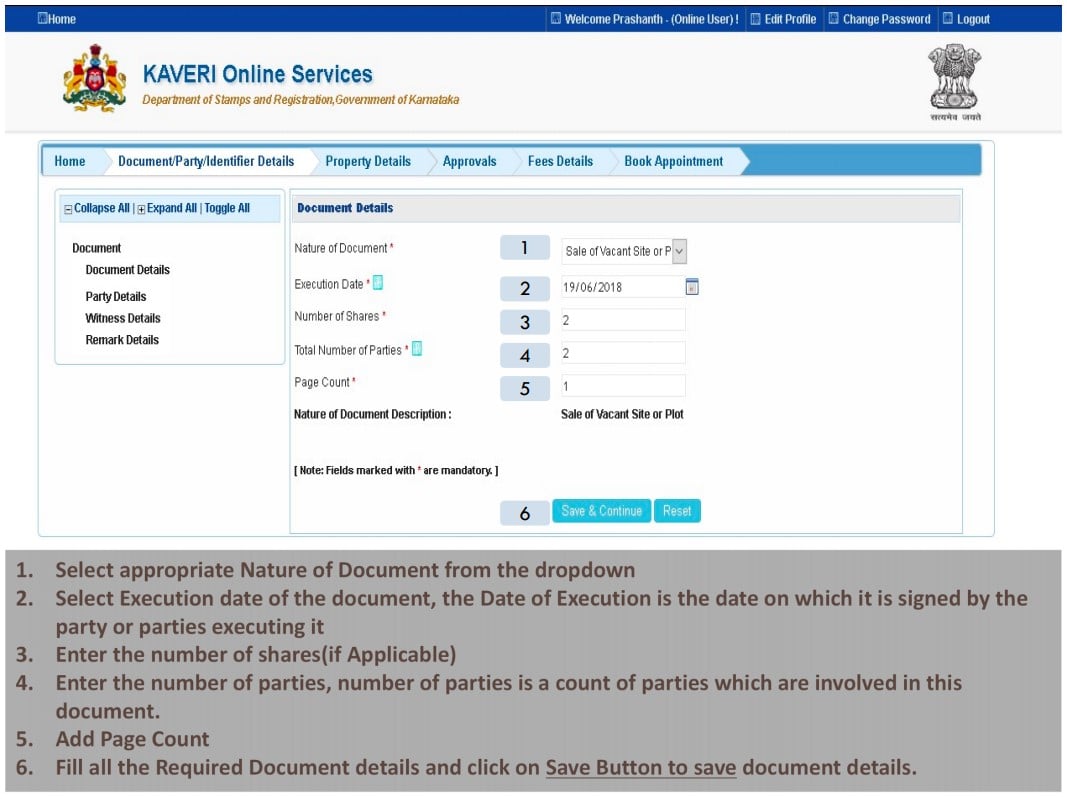
Witnesses play a vital role here. They must be the ones you know very well with a valid identity proof. Here’s why!
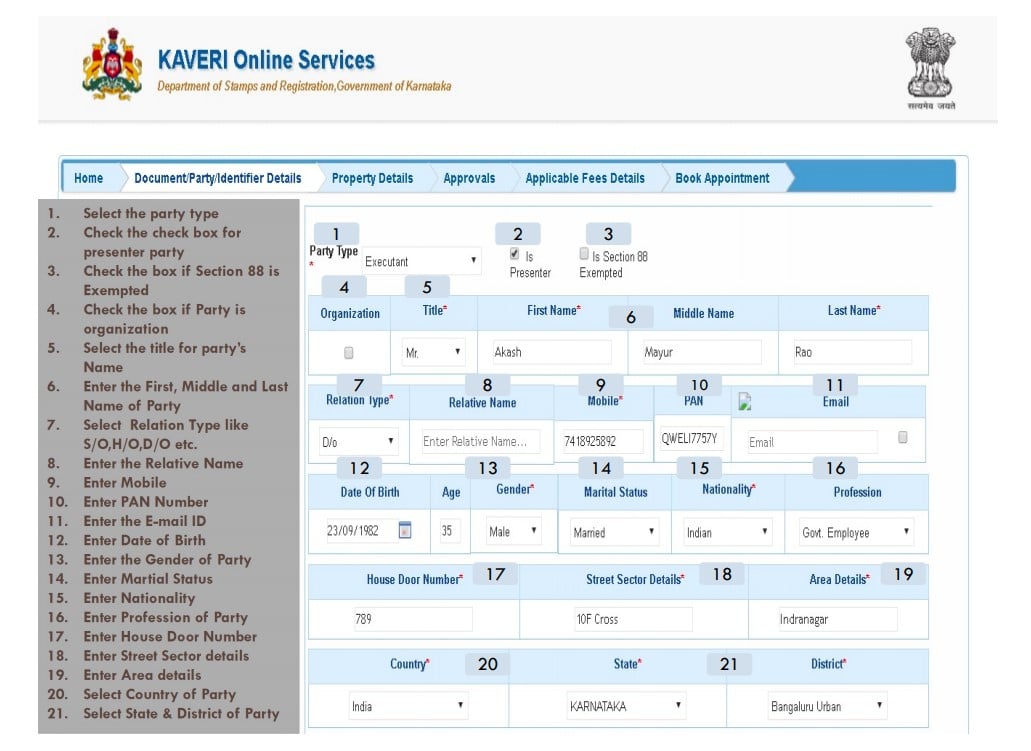
The sales deed must ideally be prepared by the advocate or an executant. Fill in all the required details save it and proceed further.
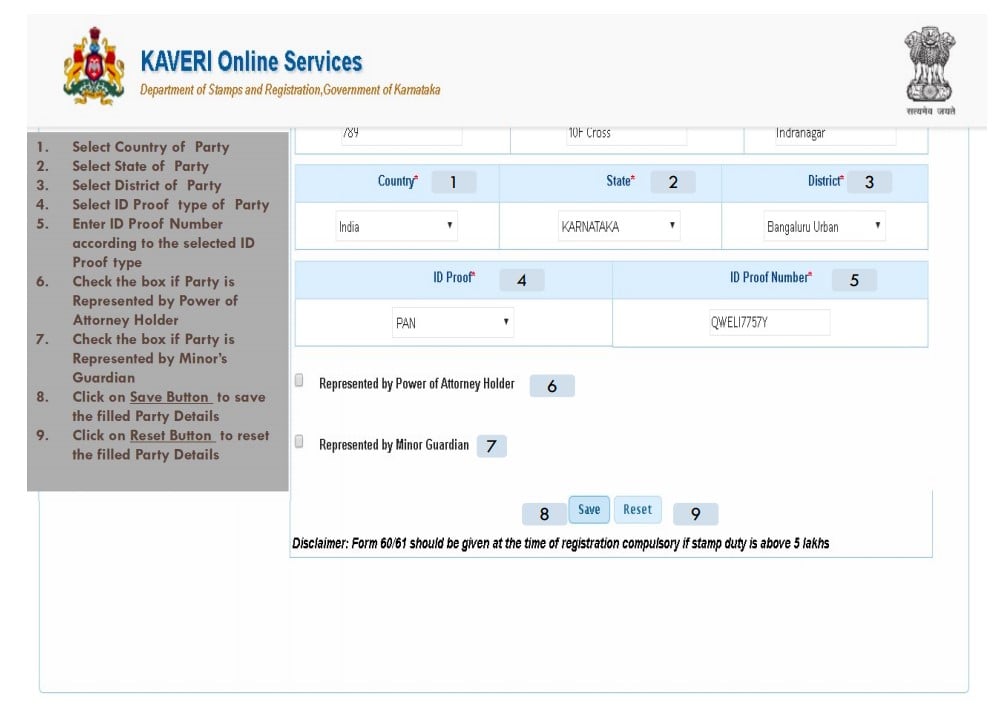
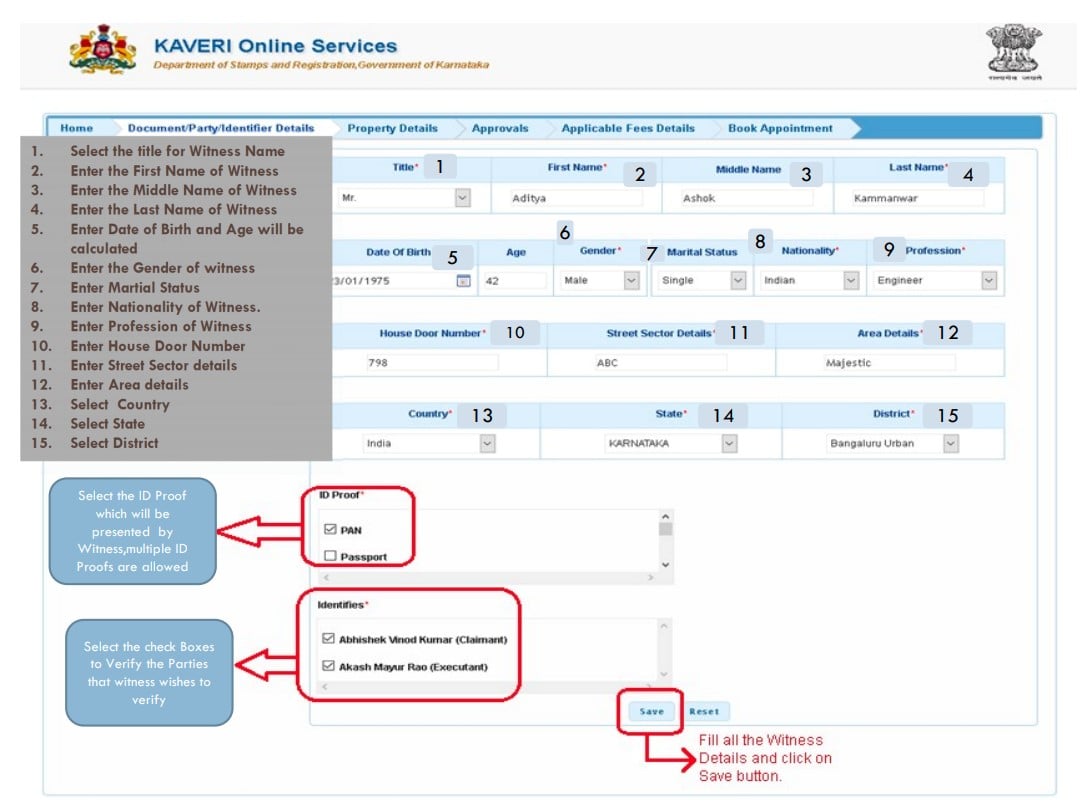
- Next comes the “property details” tab. Fill in all the details of the concerned property. Do not forget to save it. The government increased the guidance value (the minimum price at which a property can be registered on its sale). The icon number nine will calculate it for you.
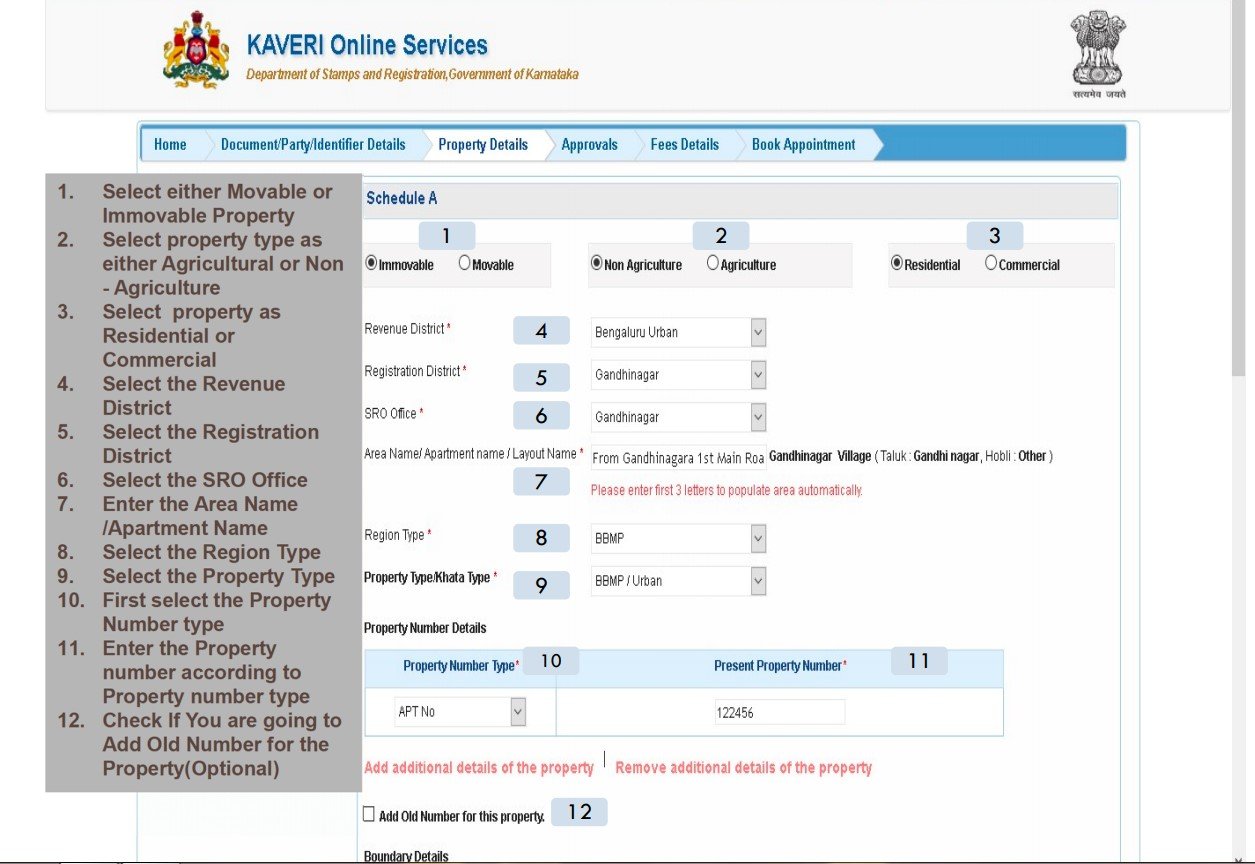
- One of the most vital steps in the registration process is the verification of property title and estimation of property value. This is an important step as far as the payment of stamp duty is concerned.
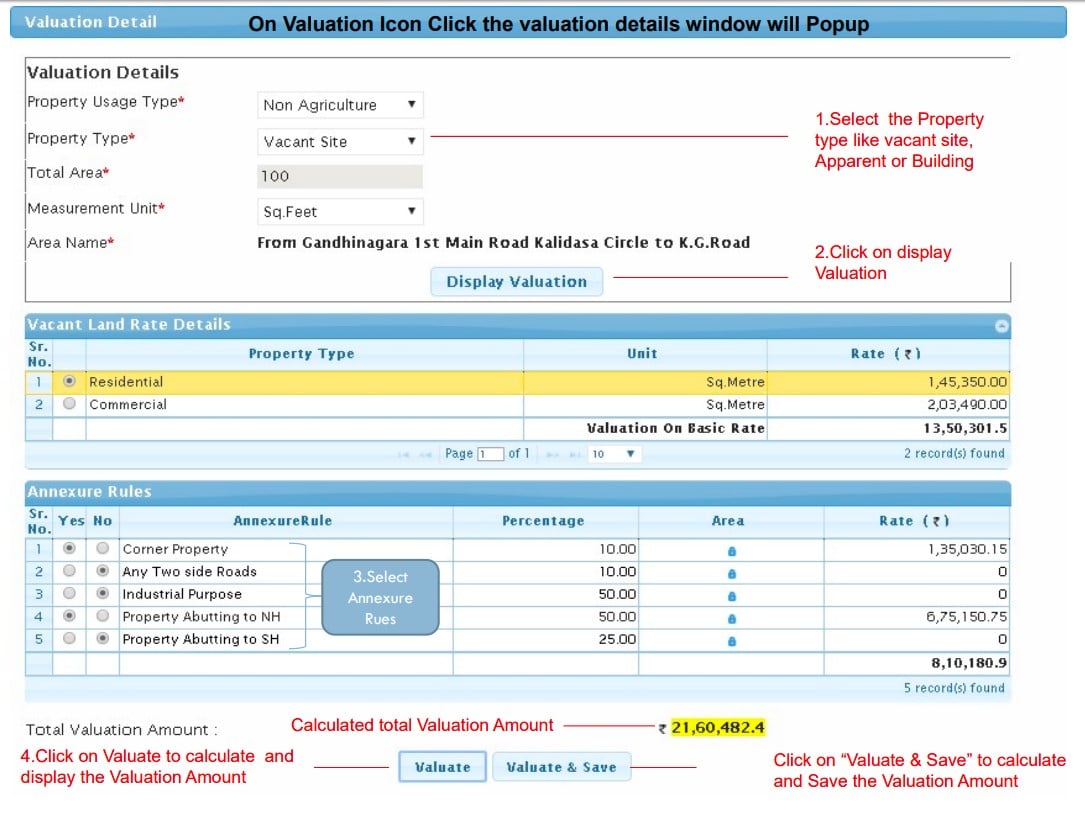
- Along with the sales deed there are a couple of other documents that would be needed such as the NOC (no objection certificate) of the building, address proof, ID and more. To seek approval from the sub-registrars office, click on the “approvals” tab and upload all the required documents in there. Also, after this click on “consideration payment details” and select a suitable payment mode to make the payment.
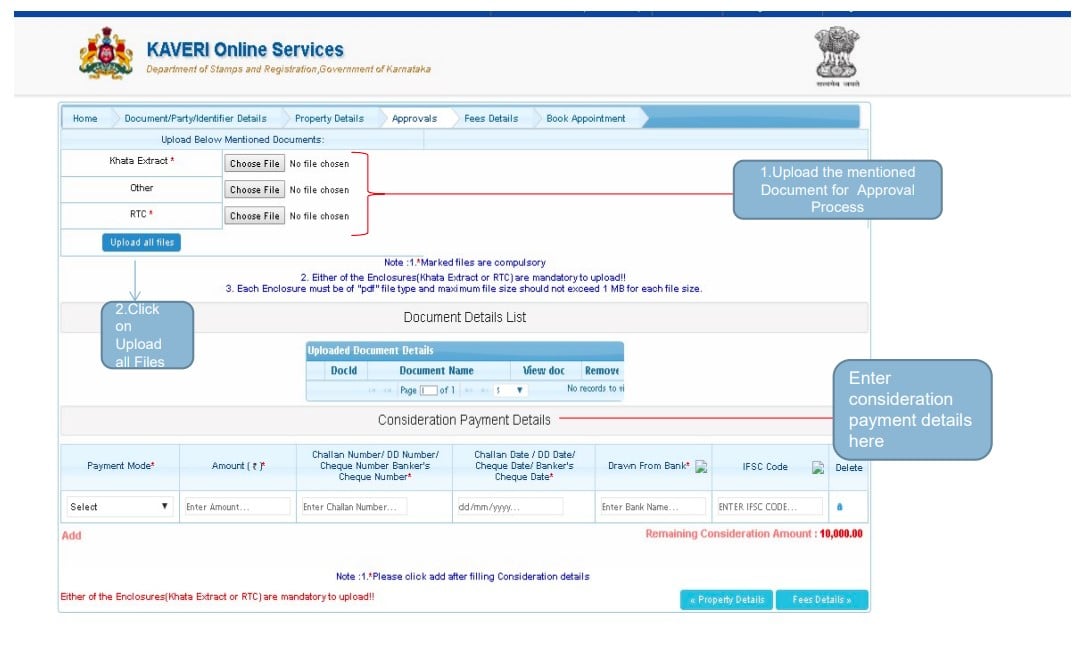
- During the application, the documents saved can be viewed and kept a tab on for further status check.
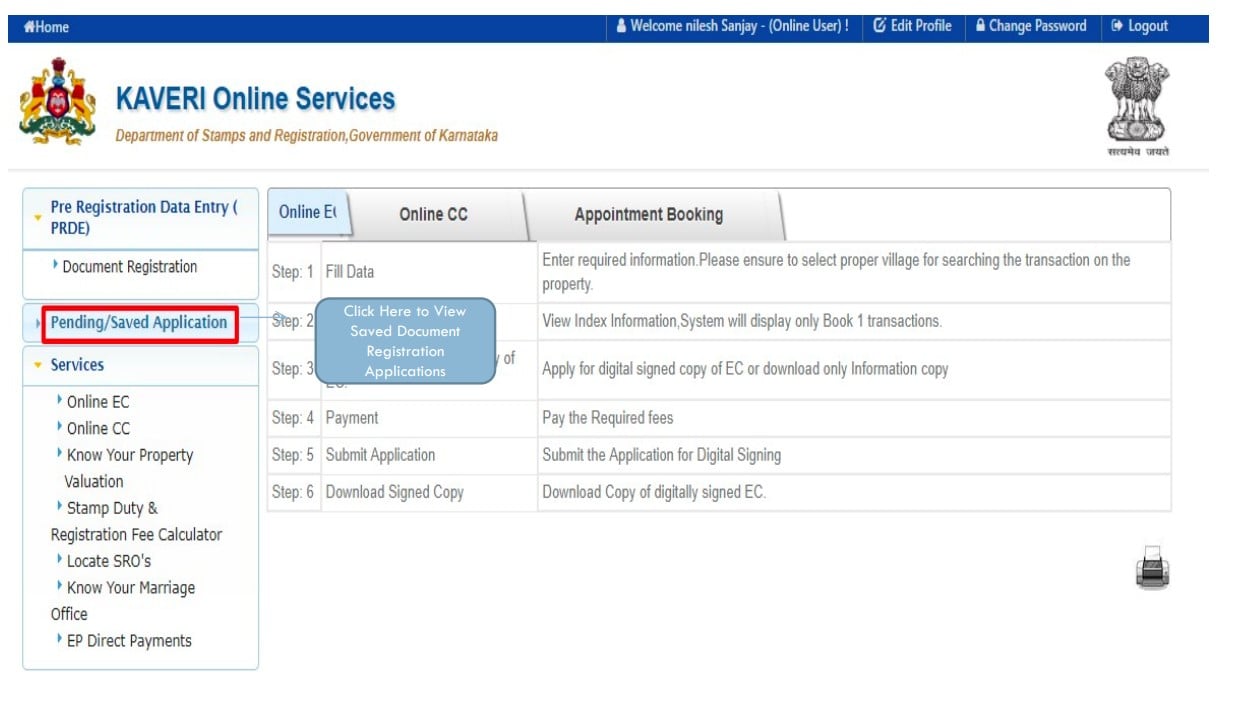
- Book an appointment for the registrations of the sales deed. To do so, one must visit the sub-registrars office along with two witnesses and their photographs and identity proof.
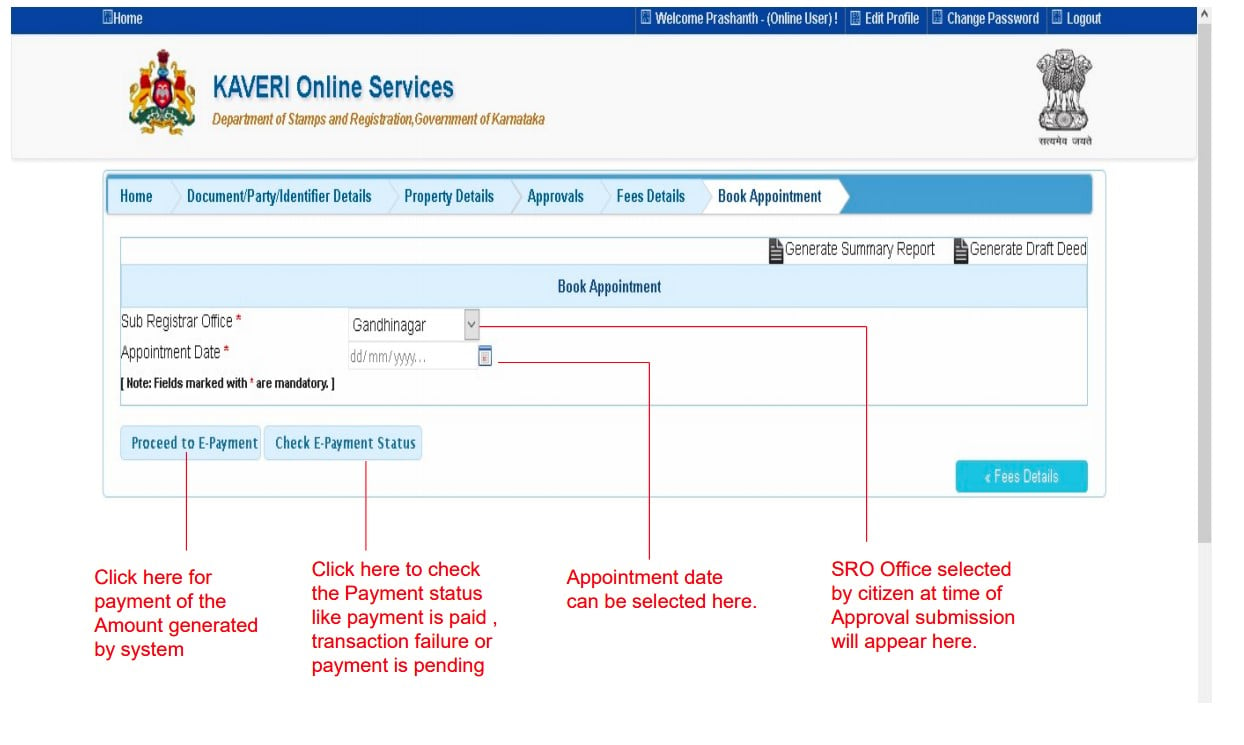
- To obtain the encumbrance certificate (EC) and certified copy, one is required to go back to step two and click on “online EC” and “online CC”
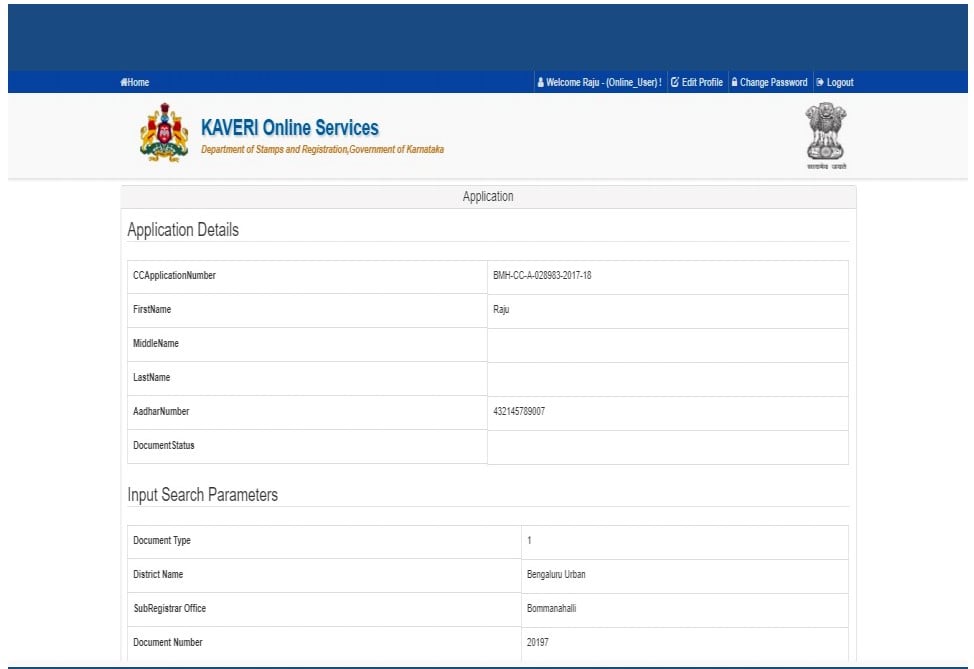
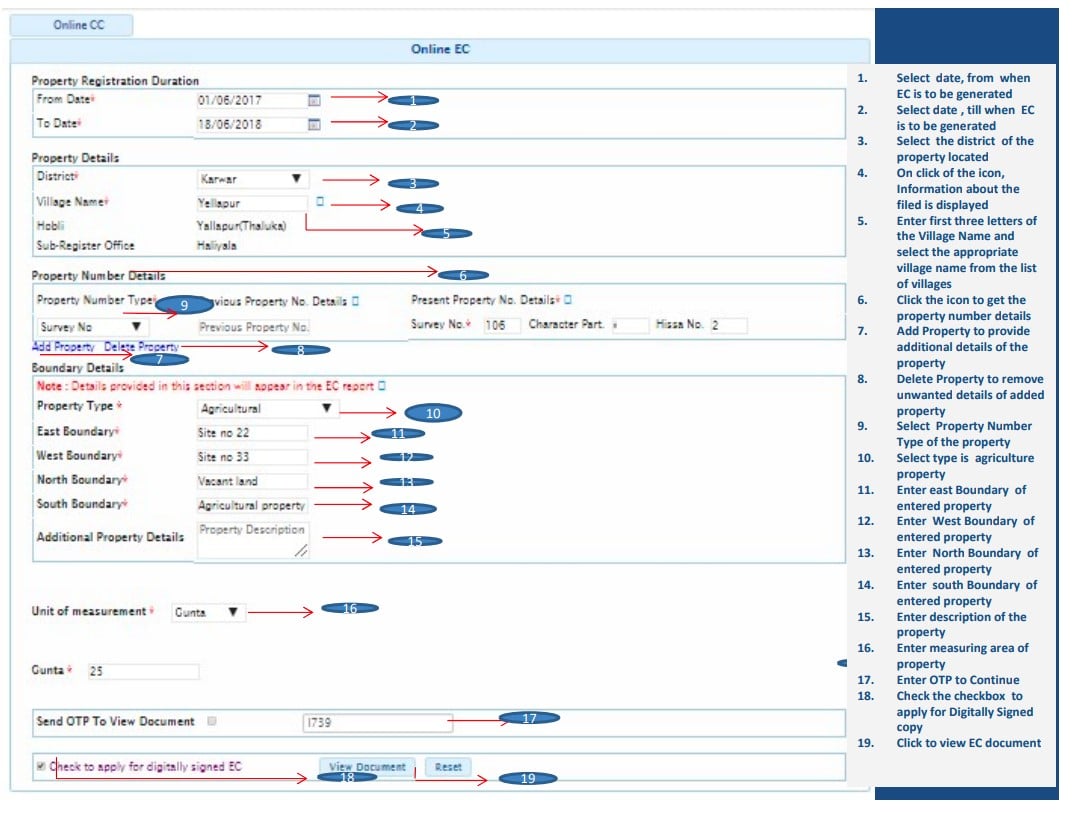
How do you now feel? Isn’t this step by step process making the procedure feel easy already? Stop worrying about the process after property registration, let’s get done with this first. This one is for Karnataka, let’s have a look at the property registration process in Telangana too. Looking at investing in properties in Hyderabad? Here’s magic!




